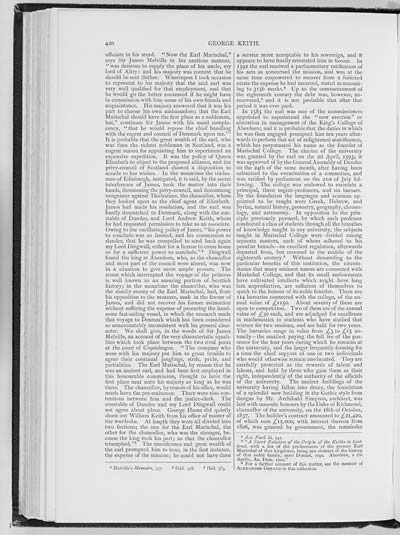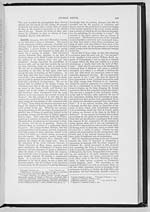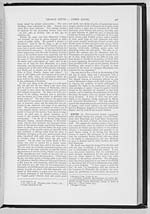420
officiate in his stead. "Now the Earl Marischal,"
says Sir James Melville in his cautious manner,
"was desirous to supply the place of his uncle, my
lord of Altry: and his majesty was content that he
should be sent thither. Whereupon I took occasion
to represent to his majesty that the said earl was
very well qualified for that employment, and that
he would go the better contented if he might have
in commission with him some of his own friends and
acquaintance. His majesty answered that it was his
part to choose his own ambassadors; that the Earl
Marischal should have the first place as a nobleman,
but," continues Sir James with his usual compla-
cency, "that he would repose the chief handling
with the regent and council of Denmark upon me."1
It is probable that the great wealth of the earl, who
was then the richest nobleman in Scotland, was a
cogent reason for appointing him to superintend an
expensive expedition. It was the policy of Queen
Elizabeth to object to the proposed alliance, and the
privy-council of Scotland showed a disposition to
accede to her wishes. In the meantime the trades-
men of Edinburgh, instigated, it is said, by the secret
interference of James, took the matter into their
hands, threatening the privy-council, and denouncing
vengeance against Thirlestane, the chancellor, whom
they looked upon as the chief agent of Elizabeth.
James had made his resolution, and the earl was
finally despatched to Denmark, along with the con-
stable of Dundee, and Lord Andrew Keith, whom
he had requested permission to take as an associate.
Owing to the vacillating policy of James, "his power
to conclude was so limited, and his commission so
slender, that he was compelled to send back again
my Lord Dingwall, either for a license to come home
or for a sufficient power to conclude."2 Dingwall
found the king at Aberdeen, who, as the chancellor
and most part of the council were absent, was now
in a situation to give more ample powers. The
storm which interrupted the voyage of the princess
is well known as an amusing portion of Scottish
history; in the meantime the chancellor, who was
the deadly enemy of the Earl Marischal, had, from
his opposition to the measure, sunk in the favour of
James, and did not recover his former estimation
without suffering the expense of procuring the hand-
some fast-sailing vessel, in which the monarch made
that voyage to Denmark which has been considered
so unaccountably inconsistent with his general char-
acter. We shall give, in the words of Sir James
Melville, an account of the very characteristic squab-
bles which took place between the two rival peers
at the court of Copenhagen. "The company who
were with his majesty put him to great trouble to
agree their continual janglings, strife, pride, and
partialities. The Earl Marischal, by reason that he
was an ancient earl, and had been first employed in
this honourable commission, thought to have the
first place next unto his majesty so long as he was
there. The chancellor, by reason of his office, would
needs have the pre-eminence. There were also con-
tentions between him and the justice-clerk. The
constable of Dundee and my Lord Dingwall could
not agree about place. George Hume did quietly
shoot out William Keith from his office of master of
the wardrobe. At length they were all divided into
two factions; the one for the Earl Marischal, the
other for the chancellor, who was the stronger, be-
cause the king took his part; so that the chancellor
triumphed. "3 The munificence and great wealth of
the earl prompted him to bear, in the first instance,
the expense of the mission; he could not have done
1 Melville's Memoirs, 357. 2 Ibid. 358. 3 Ibid. 363.
a service more acceptable to his sovereign, and it
appears to have finally reinstated him in favour. In
1592 the earl received a parliamentary ratification of
his acts as concerned the mission, and was at the
same time empowered to recover from a forfeited
estate the expense he had incurred, stated as amount-
ing to 3156 merks.4 Up to the commencement of
the eighteenth century the debt was, however, un-
recovered,5 and it is not probable that after that
period it was ever paid.
In 1583 the earl was one of the commissioners
appointed to superintend the "new erection" or
alteration in management of the King's College of
Aberdeen; and it is probable that the duties in which
he was then engaged prompted him ten years after-
wards to perform that act of enlightened munificence,
which has perpetuated his name as the founder of
Marischal College. The charter of the university
was granted by the earl on the 2d April, 1593; it
was approved of by the General Assembly of Dundee
on the 24th of the same month, after having been
submitted to the examination of a committee, and
was ratified by parliament on the 21st of July fol-
lowing. The college was endowed to maintain a
principal, three regent-professors, and six bursars.
By the foundation the languages and sciences ap-
pointed to be taught were Greek, Hebrew, and
Syriac, natural history, geometry, geography, chrono-
logy, and astronomy. In opposition to the prin-
ciple previously pursued, by which each professor
conducted a class of students through all the branches
of knowledge taught in any university, the subjects
taught in Marischal College were divided among
separate masters, each of whom adhered to his
peculiar branch�an excellent regulation, afterwards
departed from, but resumed in the middle of the
eighteenth century.6 Without descending to the
particular benefits of this institution, the circum-
stance that many eminent names are connected with
Marischal College, and that its small endowments
have cultivated intellects which might have long
lain unproductive, are sufficient of themselves to
speak to the honour of its noble founder. There are
114 bursaries connected with the college, of the an-
nual value of �1150. About seventy of these are
open to competition. Two of them are of the annual
value of �30 each, and are adjudged for excellence
in mathematics to students who have studied that
science for two sessions, and are held for two years.
The bursaries range in value from �3 to �15 an-
nually�the smallest paying the full fee of the pos-
sessor for the four years during which he remains at
the university, and the larger frequently forming for
a time the chief support of one or two individuals
who would otherwise remain uneducated. They are
carefully protected as the rewards of talent and
labour, and held by those who gain them as their
right, independently of the authority of the officials
of the university. The ancient buildings of the
university having fallen into decay, the foundation
of a splendid new building in the Gothic style from
designs by Mr. Archibald Simpson, architect, was
laid with masonic honours by the Duke of Richmond,
chancellor of the university, on the 18th of October,
1837. The builder's contract amounted to �21,420,
of which sum �15,000, with interest thereon from
1826, was granted by government, the remainder
4 Act. Parl. iii. 541.
5 "A Short Relation of the Origin of the Keiths in Scot-
land, with a list of the predecessors of the present Earl
Marischal of that kingdome, being ane abstract of the history
of that noble family, anno Domini, 1690. Aberdeen, x die
Aprilis, An. Dom. 1700."
6 For a farther account of this matter, see the memoir of
ALEXANDER GERARD in this collection.

![]() Universal Viewer |
Universal Viewer | ![]() Mirador |
Large image | Transcription
Mirador |
Large image | Transcription
![]()

